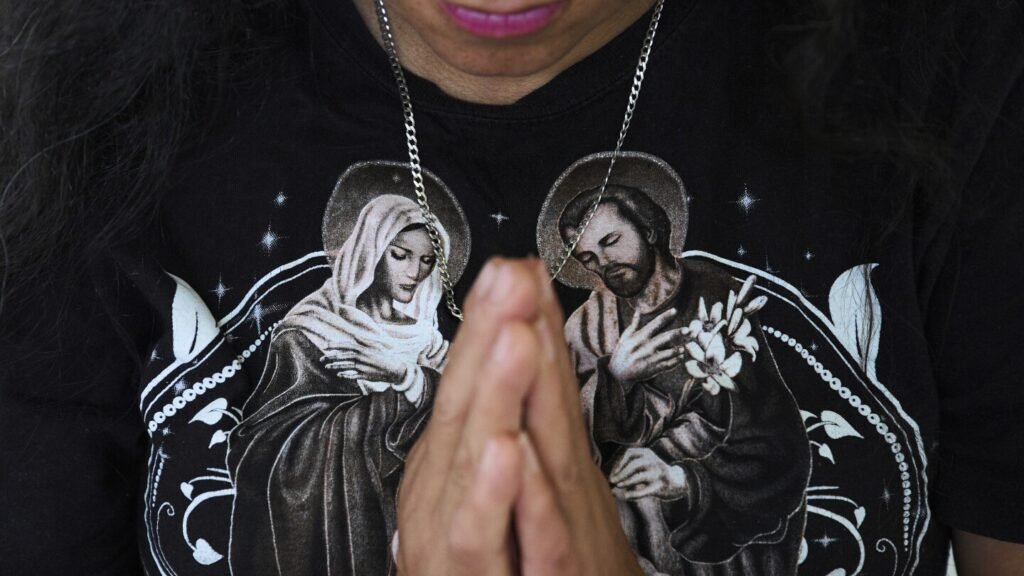The Health Care Crisis Among Immigrants in the Rio Grande Valley
Introduction: A Community in Fear
In a rural corner of Texas, where orange groves stretch across the horizon, many immigrants face an urgent and unsettling crisis. The political climate, intensified by recent policies aimed at increasing deportations, has left families like Juanita’s in a state of fear and anxiety. Every day, she prays as she steps off her driveway, anxiously aware that a visit to the pharmacy for her prediabetic medication could jeopardize her ability to care for her 17-year-old daughter, Marely, who has Down syndrome.
The Cost of Fear: Health Care Accessibility
Over two decades ago, Juanita crossed into the United States from Mexico, searching for a better life. Today, she is a mother caught in a web of fear and uncertainty. "If I am caught, who’s going to help my daughter?" she expresses in Spanish. Such sentiments resonate deeply with many immigrants in the area, especially as federal agents increasingly monitor local locations like hospitals and churches for undocumented individuals.
As deportation efforts ramp up under the current administration, many long-term residents of the Rio Grande Valley—once unbothered by their immigration status—are now avoiding essential medical care. Tucked behind busy freeways and bustling roadside taquerias, lies a community in dire need of health services, yet paralyzed by the fear of being detected and deported.
The Ripple Effect of Immigration Policies
Federal agents have been directed to employ unprecedented measures to identify undocumented immigrants, including combing through vast medical databases. This broad scope of enforcement raises the stakes for those needing medical attention, particularly in one of the nation’s poorest regions plagued by severe healthcare disparities. Many families who previously traversed freely between the U.S. and Mexico for personal needs now think twice before leaving home.
Patients who typically would go for regular check-ups are now avoiding necessary medical care, fearing that seeking treatment could lead to detention. This scenario leads to vastly detrimental health outcomes. Almost half the local population is diagnosed with obesity, and there are high rates of diabetes, cervical cancer, and dementia. Yet, a staggering number of residents lack health insurance, leading to an even larger public health crisis.
On the Frontline: Community Health Initiatives
Organizations like Holy Family Services in Weslaco are trying to adapt to the growing hesitance among patients. However, with increasing fears of deportation, fewer people are using these health services. Staff members witness firsthand the consequences of this distrust; parents hesitate to enroll their U.S.-born children in programs like Medicaid out of fear that sharing information could result in repercussions.
“This is a very dangerous situation for our families,” explains Dr. Stanley Fisch, a pediatrician serving the local population. With untreated conditions piling up, the community faces an impending health crisis. Strikingly, many children are missing critical medical visits, which can lead to long-term health ramifications.
Stories from the Community: Lives Impacted by Fear
Maria, another immigrant mother, now relies on food banks to provide for her family after refusing to go to work on local farms for fear of being detained. The situation escalated recently when her son experienced severe stomach pain but delayed seeking medical help. "He waited too long, and his appendix burst," she recounts tearfully. Such instances are becoming shockingly common, as fear prevails over immediate medical needs.
Similarly, in the shadow of constant anxiety, Juanita now carries a heavy emotional burden. The mundane act of picking up a prescription feels like a treacherous journey. “We always pray before we leave,” her son Jose explains, underscoring the reality of their lives—where faith serves as a fragile shield against overwhelming fear.
Conclusion: A Call to Action
The climate of fear among immigrants in the Rio Grande Valley is not just a personal struggle for families like Juanita’s and Maria’s; it is a crisis impacting the overall health and productivity of entire communities. As the government continues to tighten its immigration policies, immediate actions must be taken to ensure that vulnerable populations can access necessary healthcare without the looming threat of deportation.
To facilitate change, policymakers must consider the human element behind the statistics and stories, crafting legislation that separates health care access from immigration status. Programs protecting immigrants’ rights to seek medical attention without fear are essential for fostering healthier communities. In this deeply interconnected society, the health of one profoundly affects the health of all.
For more information on immigrant healthcare issues, visit Centers for Disease Control and Prevention and American Medical Association.


